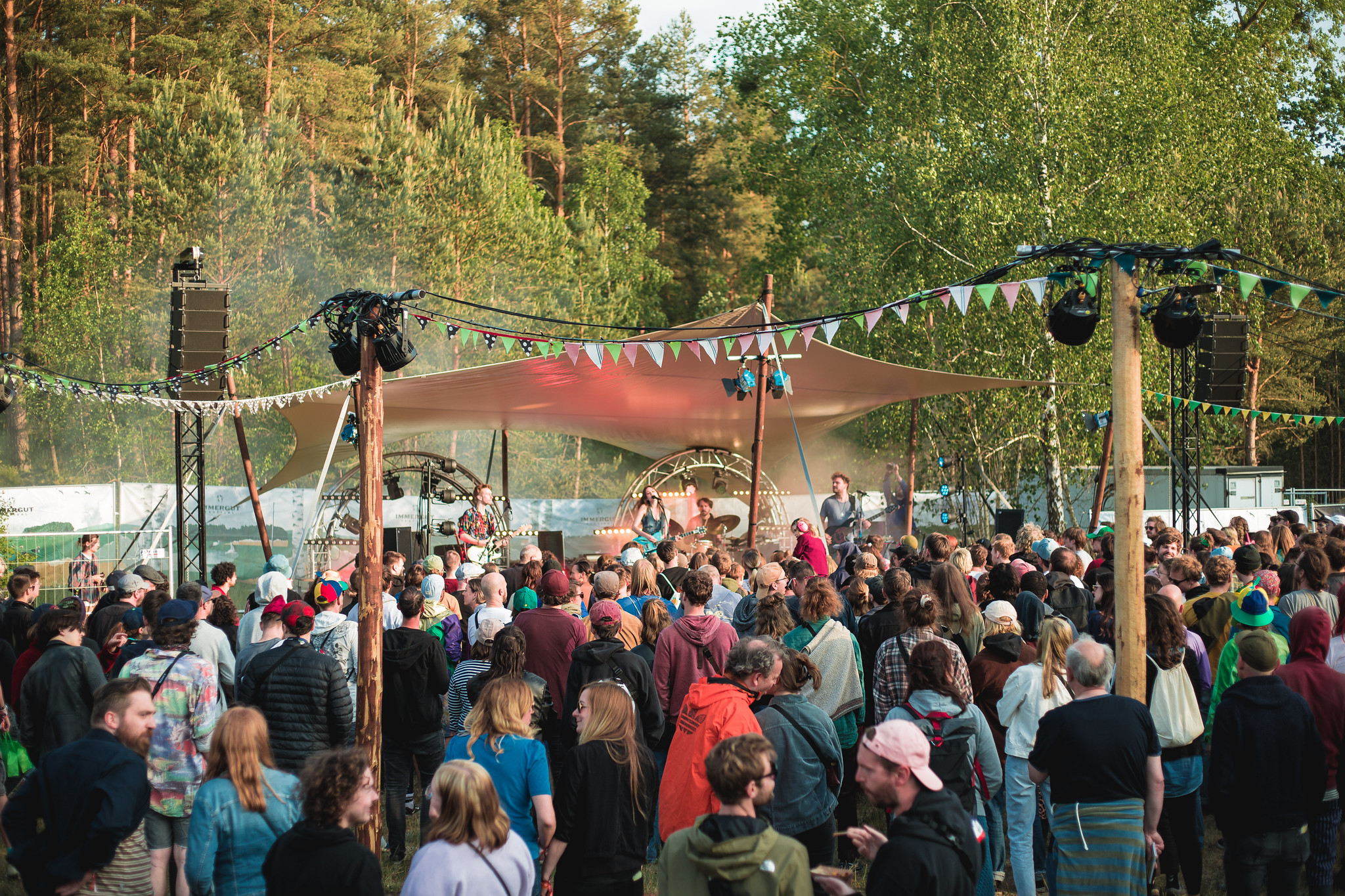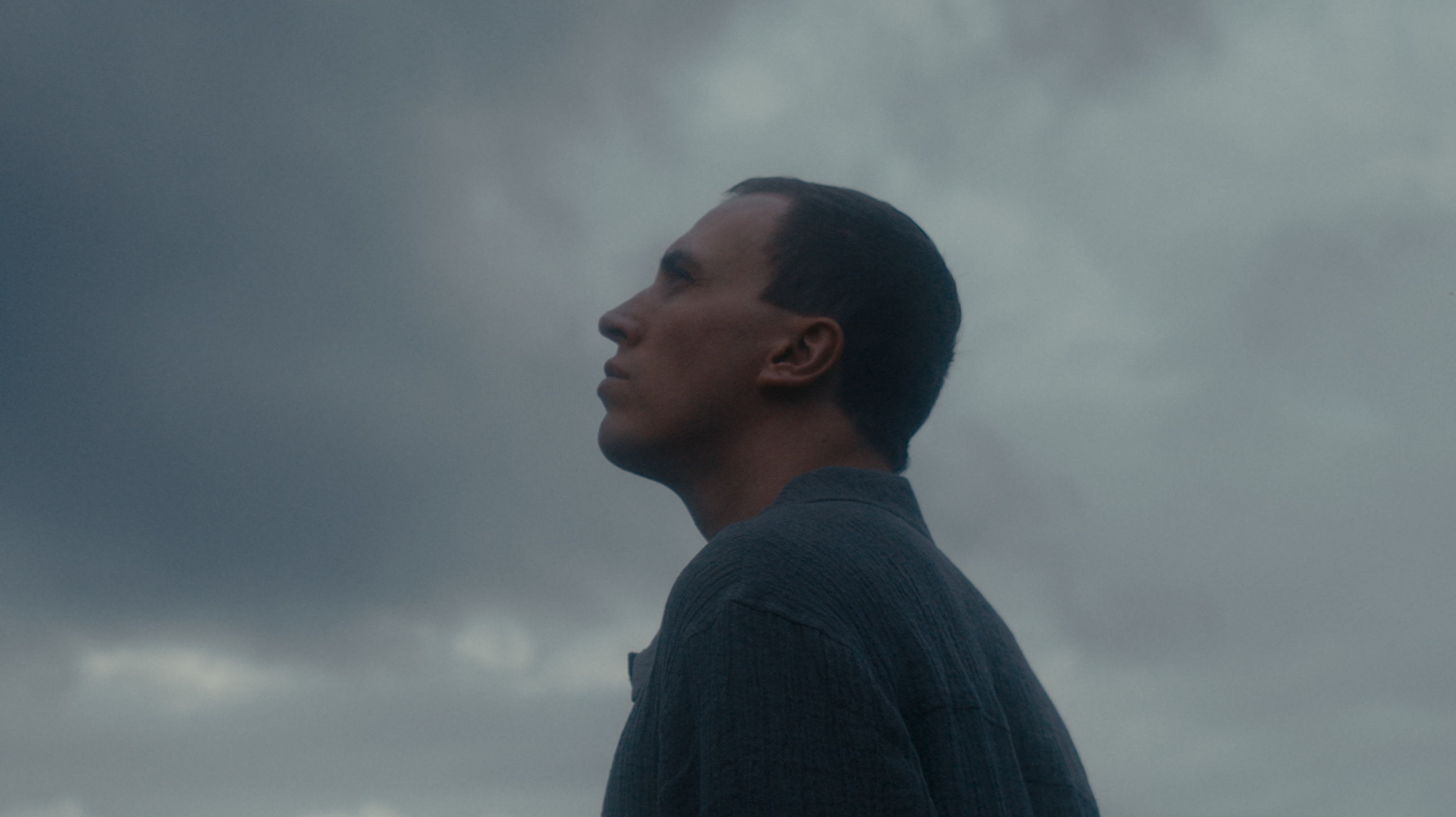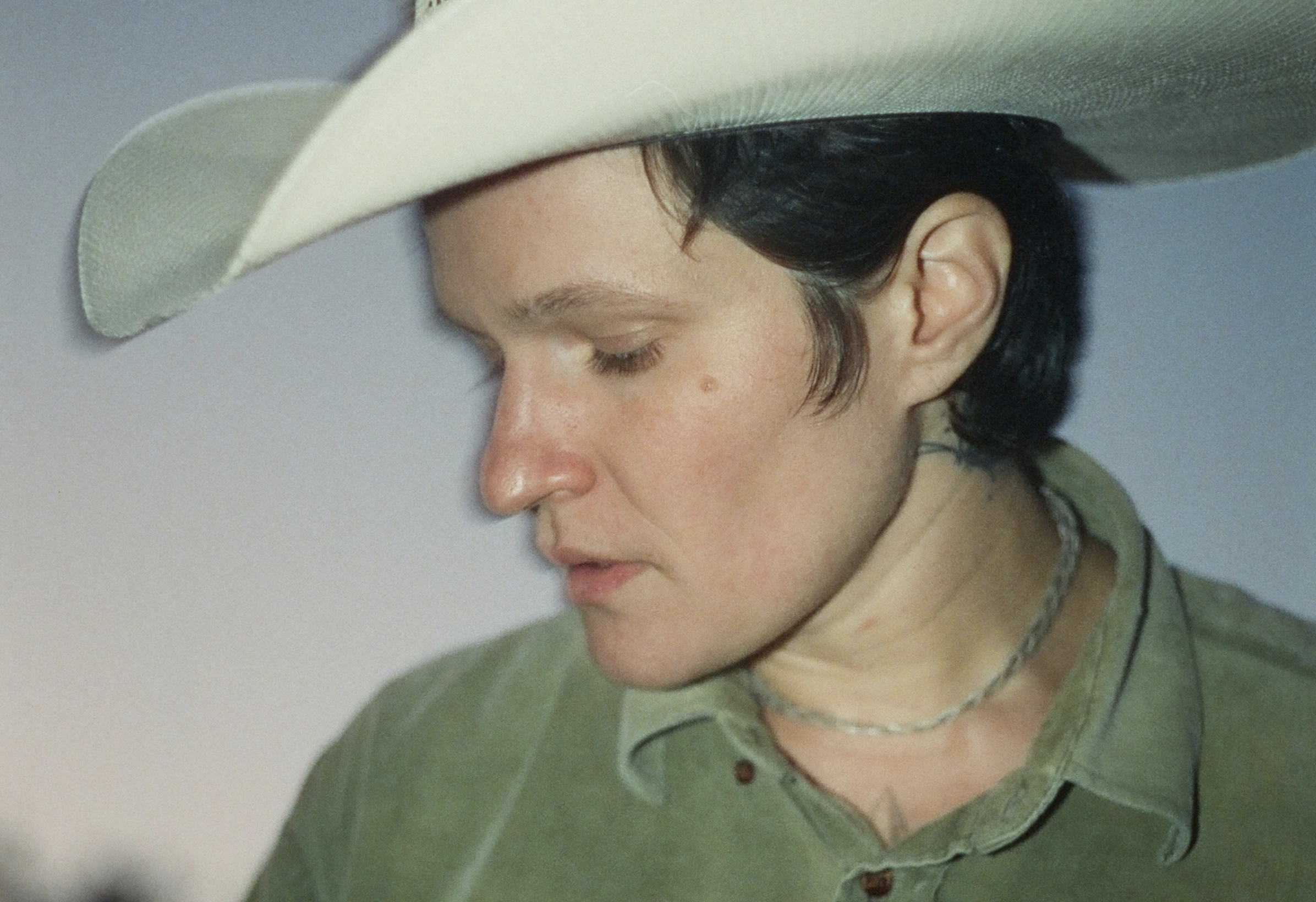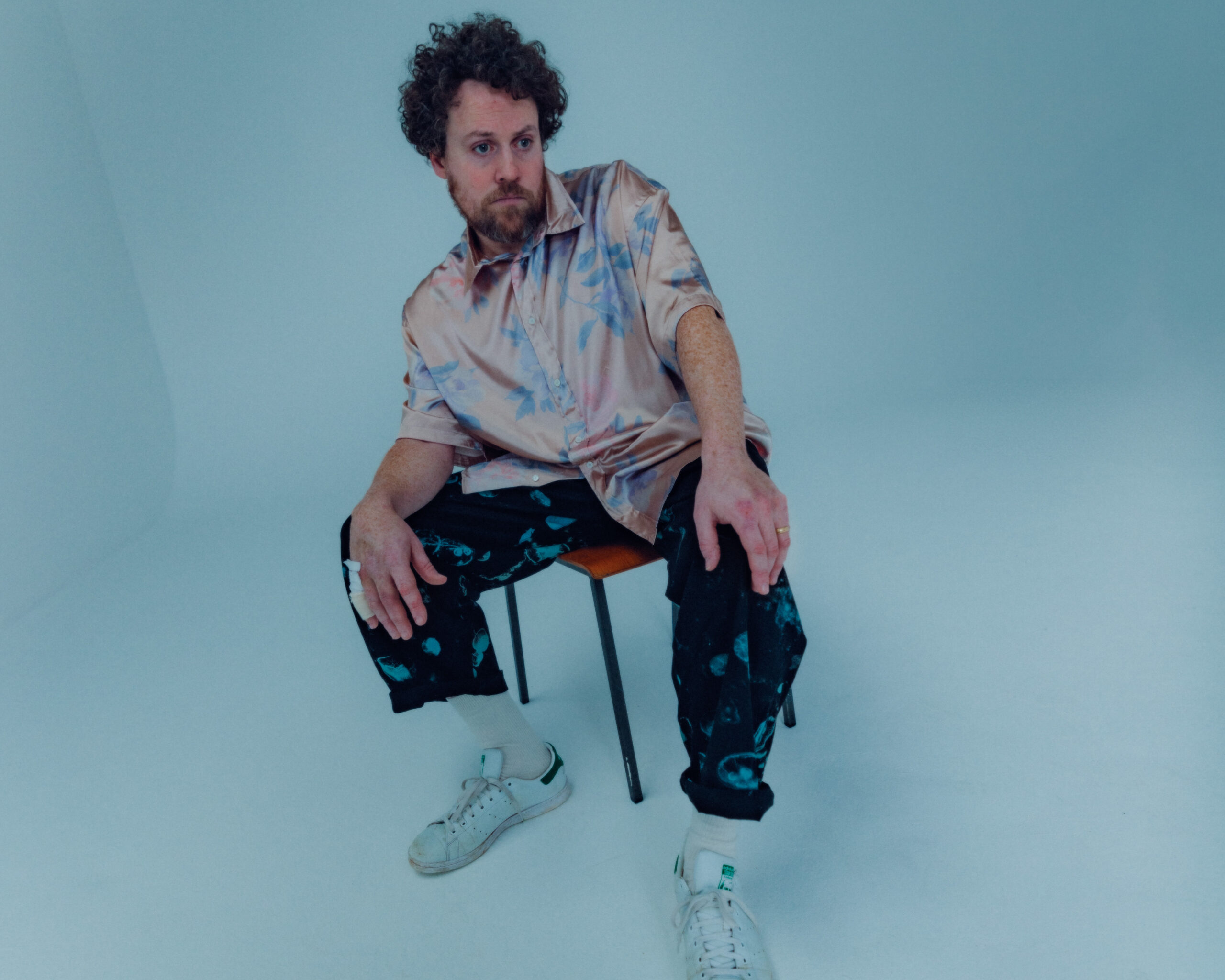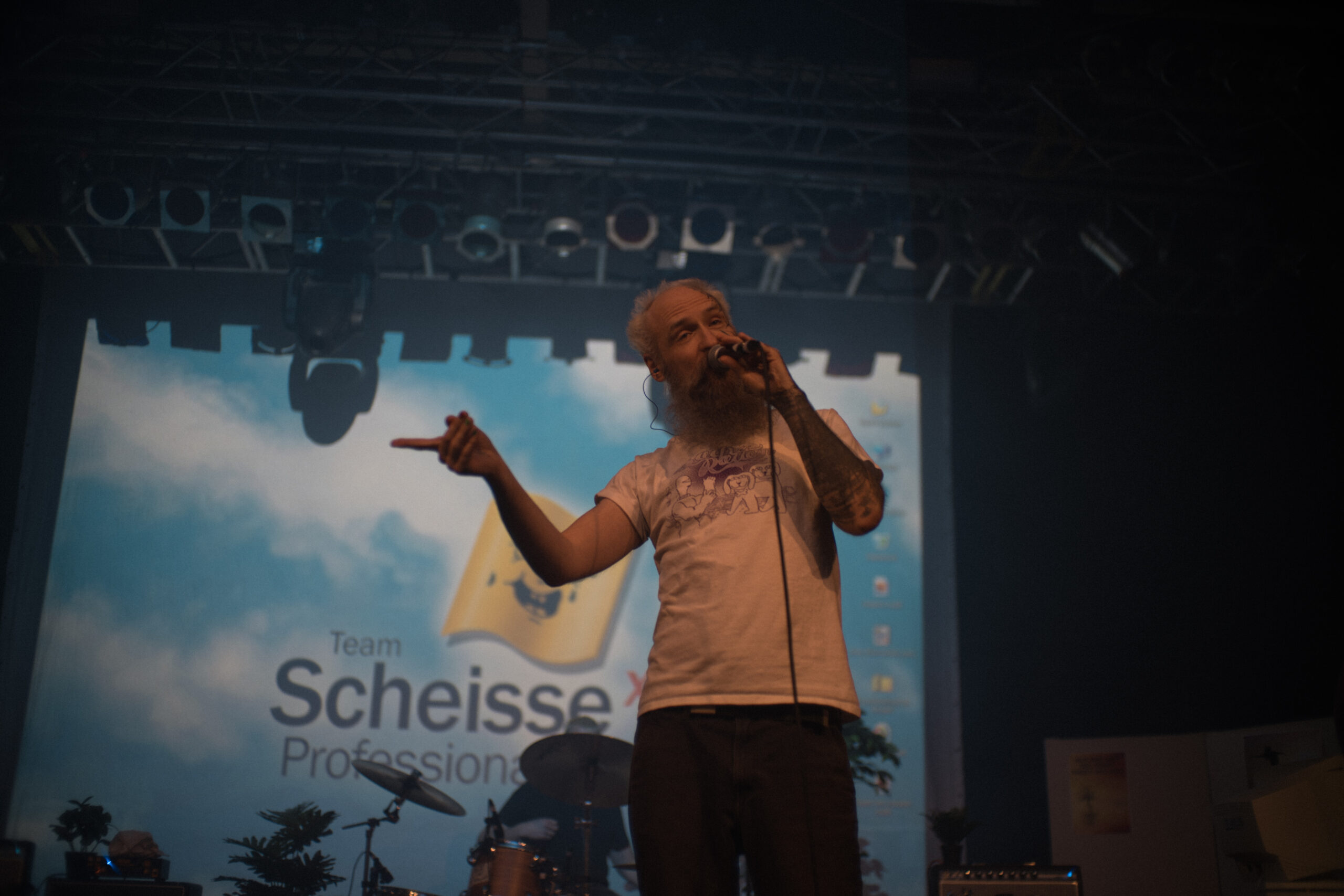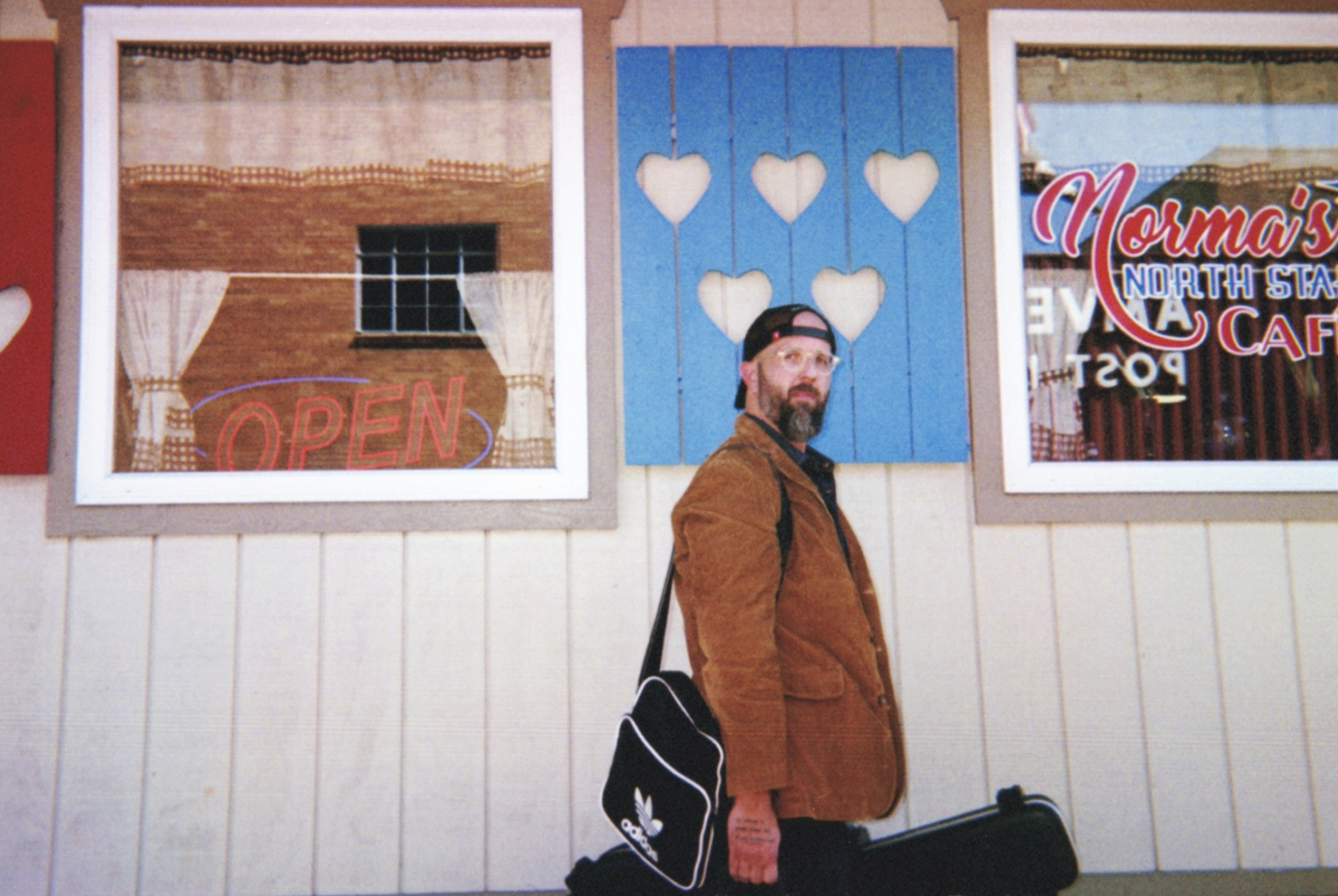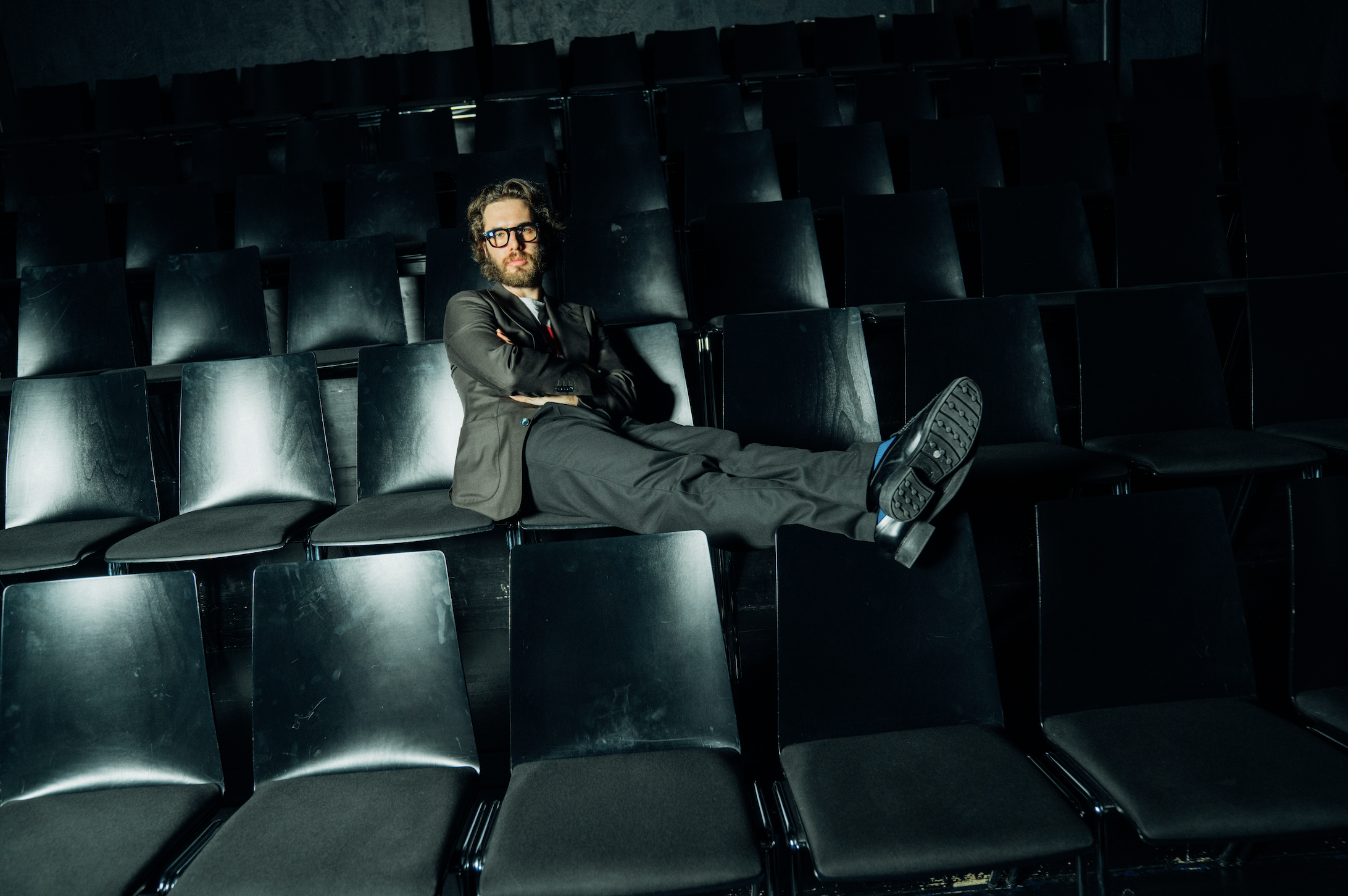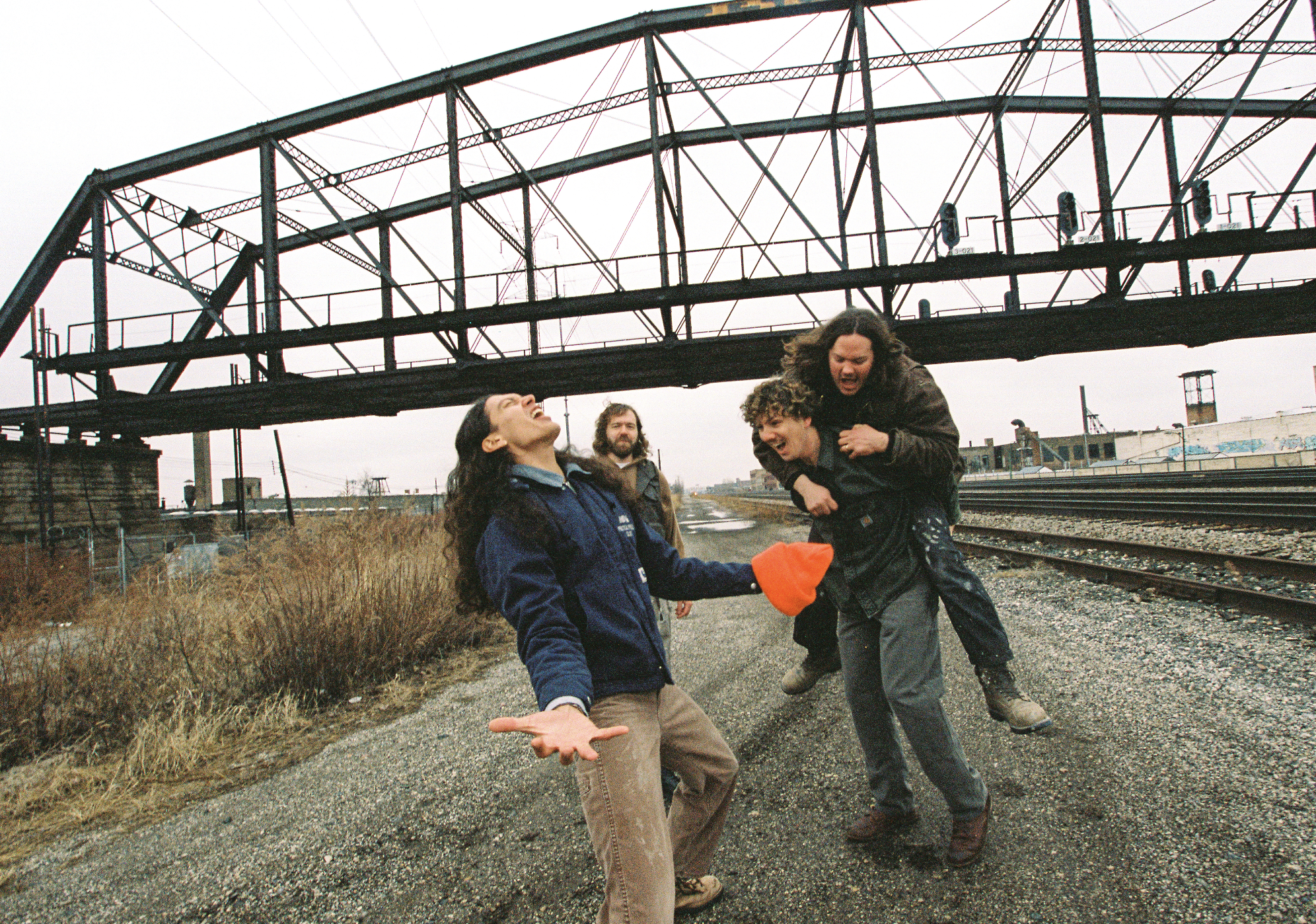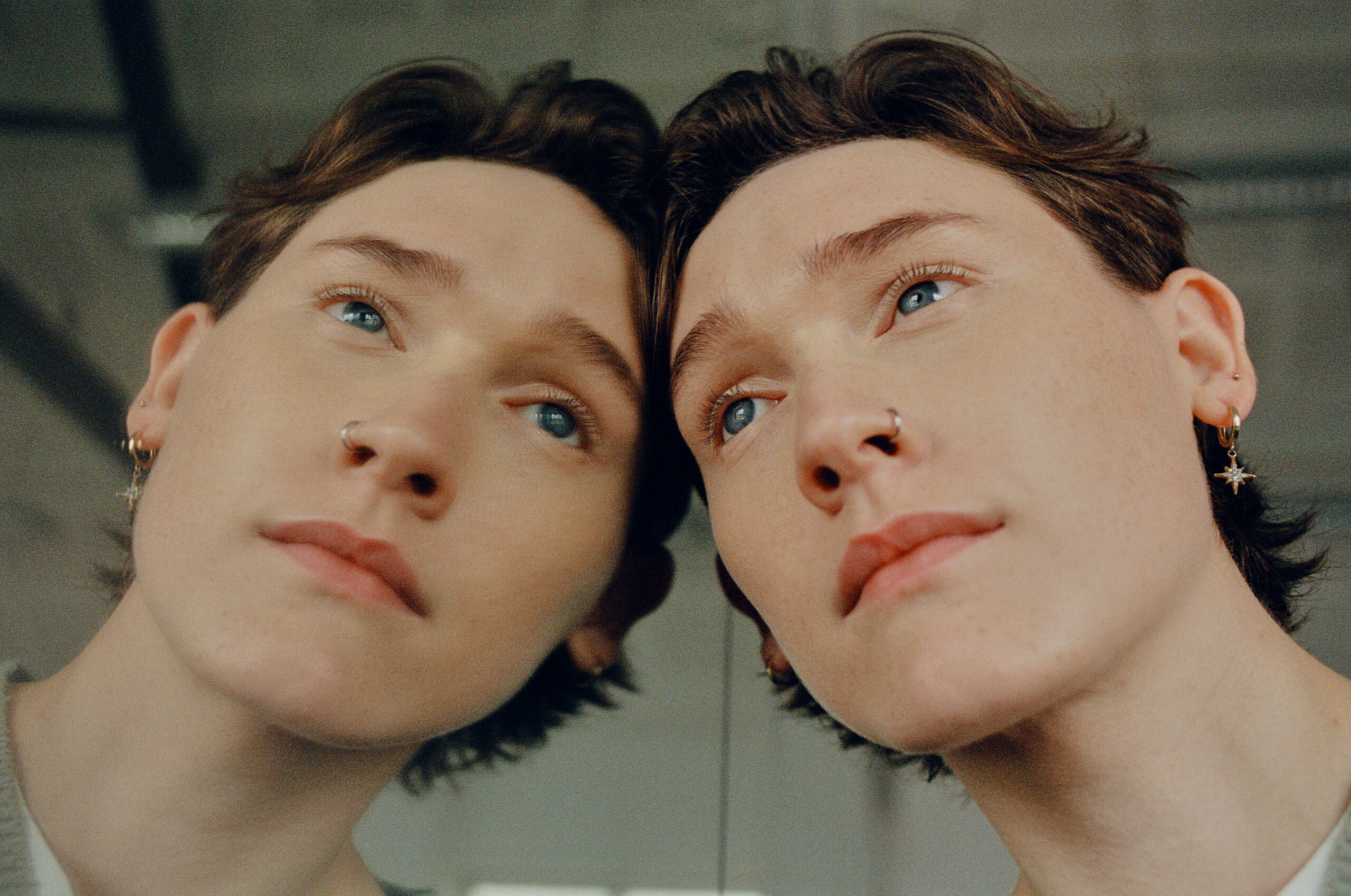Foto-© Sam Hiscox
Am 20. Mai erscheint das dritte Album von Bridie Monds-Watson (they/them), aka SOAK, via Rough Trade Records. If I Never Know You Like This Again beschreibt Monds-Watson selbst als “song-memories” aus den Pandemietagen, in denen sich einerseits die Stunden zogen und es gleichzeitig schwer war, sich der Außenwelt zu entziehen, obwohl sich viele Menschen isoliert gefühlt haben. Am Ende des Prozesses stand jedoch die Gemeinschaft: Erstmals kamen alle Mitglieder der SOAK-Live-Band zu den Aufnahmen in den Attica Studios in Donegal zusammen – nach all der Zeit in Einsamkeit, hört man die Euphorie, die sich aufgrund des Zusammentreffens im Studio breit machte, in jedem Song.
Wir haben mit Monds-Watson Anfang April via Zoom über die neue Platte gesprochen. Wir erfahren mehr darüber, warum If I Never Know You Like This Again das treffendste Bild der künstlerischen Vision von SOAK und Monds-Watson als Person ist. Wir sprechen darüber, wie wichtig es dafür war, sich von den Erwartungen und Bewertungen von außen freizumachen und warum nach dem kathartischen Schreiben der Songs die Aufnahmen mit so viel positiver Energie gefüllt waren. Außerdem erfahren wir, warum es so schwierig und gleichzeitig wichtig ist, Erinnerungen so authentisch wie möglich zu konservieren und wie der Prozess ablief, sich als junge Künstler*in selbst zu finden.
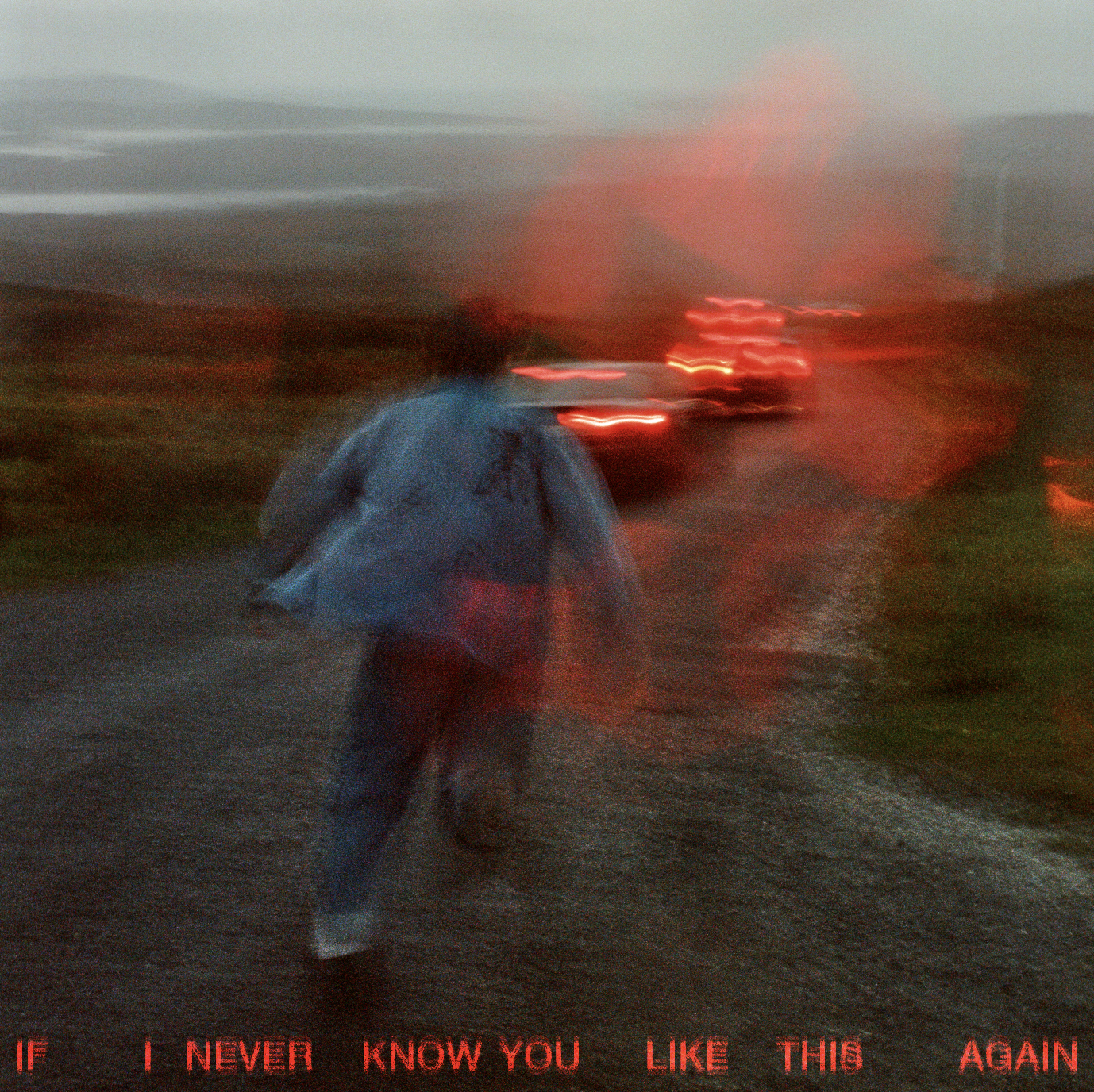 Congratulations on your third album. You said it is the most accurate picture of you. What does that mean?
Congratulations on your third album. You said it is the most accurate picture of you. What does that mean?
Lyrically and musically, I did not doubt myself as much. I was very honest about who I am as a person – good and bad. I did not try to make the lyrics sounds more elegant or articulate. I best captured myself: where I am at this moment in my life, who I am a person and all the questions I have about myself, the future, and the world. In that way, it is the most genuine thing that I have done.
How does that genuineness appear sound wise?
I was making music with the questions of, “What do people expect from me? What do people want to hear from me?” as opposed to what I wanted to make. Thinking about it now, it was a subconscious thing. When I came to this album, it was more of, “What do I like? What do I want to make?” I have to play it and listen to it for the rest of my life. I need to like it first and foremost. With my last album, I was a bit lost, I was experimenting a lot with music. I learned a lot, but it was only this record, where I felt fully satisfied with the sounds and the songs I was making. It was more of following my own gut and make it what I really like more than anything else.
Was it hard for you to find out what that is being surrounded by so many influences and expectations?
Regarding the internet and social pressures and the media, it has been quite a noisy world for a lot of my life. Especially when you are creatively trying to make things and to be genuine, it is hard to dump all that noise and focus on what you want to make and what you want to say. For me, it has been disconnecting to whatever degree I can. Naturally, I am an avoidant person. Music is the time in my life, where I can figure out why I feel how I feel and problem solve. Everything in the world is trying to grab your attention, it is hard to get into a zen state avoiding all that. I had to adopt a work ethic, where I make art in a week, when I am definitely going to be home alone. If I was not doing that, it would be very hard for me to focus. It is very easy to let the pressures of the world and social media affect your creative direction and your career. It would be tempting to get a nearly false personality on TikTok for example, because that is going big at the moment. Come back to yourself and figure out what you want to say without all that and with you at the end of the tunnel – satisfying your own creative intensions as opposed to the internet’s.
I imagine that to be a hard process, because it requires a lot of honesty and self-reflection. A lot of people use social media to zone out from their lives and the world.
I am not great at it. The nature of the pandemic was that everybody was trying to seek out connection and distraction from the world. That manifested itself with insane screen times for many people. I do not think anybody can blame themselves for that, it was desperate circumstances. I fell into that too. But I noticed how shit I felt, when I would spend that much time online. It did not feel productive. Being online became very toxic for me and not great for my mental health. I am trying to learn how to use it as a tool for promotional methods and to be involved when the album is coming out. But too much of it is not good for you. It is a challenging situation for most people to figure out how to use social media. I am very intrigued to hear about different studies. It is addictive, but people are reluctant to call it that.

I read that all of you in the band were very excited to be able to play again when you met for the recordings. Do you still feel that excitement when you listen to the album?
In all the previous albums I made there were different musicians playing on them, but never all in the same room. It was bitsy – someone recorded the drums, the bass the next day and so on. This one is the first album we recorded as a proper band. I have known the people that play with me for nearly ten years now. When I was writing it, I was really isolated, given the circumstances of the world. I could not wait to finish, because at the end of the road, we would be able to be together and play music and hang out. Day to day – the best thing I can imagine is making things with friends. Especially, if they are very good musicians. It is so joyful. Having everything stripped away from us, this need became so much more intense. With the relief of finally getting to be together and play together, everyone was so happy hearing and making music. Everybody was really into it and having a lot of fun. The songs itself have a slacker-ish, sarcastic nature at times and with that we had a leeway to just mess around. We did not take it too seriously; we were just having fun. It does reflect on the album. I still drive around listening to it as it is so recent. All the memories and the songs feel very now. It still means a lot to me. It was the most fun I had making an album, for sure.
Is recording your favorite part of the working circle, to bring the songs alive for the first time?
I enjoy all different stages for different reasons. My favorite thing is when you have all the songs for the album written and you finally go and record. There is something very special and fun about that part of the process. Everybody feels very good about themselves. Equally, my other favorite part is playing live. There is so much joy and emotion in that. It is intense and intimate. I like doing all those things. Being able to perform and to have people listen is very special. Getting that option feels very lucky. For me, going on tour is like going on holidays. It is such a joy to be able to do that. Especially, because I love the people I play with, and I have been playing with them for so long. We just know each other well. Every part of making music is fun, but the performance side is my favorite. It is so unpredictable and always challenging. You find your sense of purpose. It is very affirming to have people come and wanting to see you play and care about what you do.
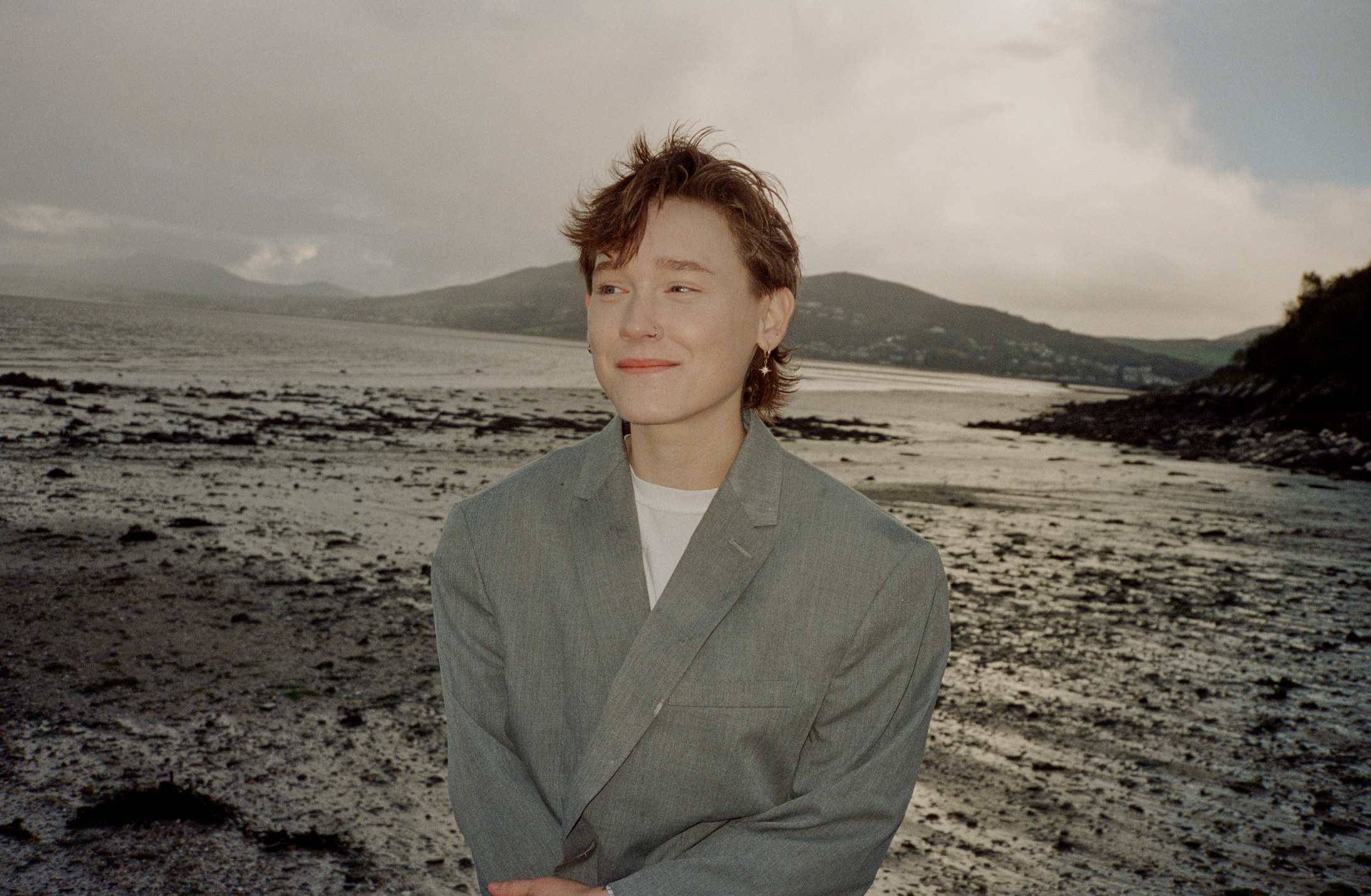 Let’s talk about the title If I Never Know You Like This Again. It is about memory, but it also sparks a sense of loss after the moment is gone.
Let’s talk about the title If I Never Know You Like This Again. It is about memory, but it also sparks a sense of loss after the moment is gone.
Yes, exactly. I was trying to name the album for a long time. I hate naming things. It is the final part and then it is done. The last one or two percent of something are always the hardest. You keep asking yourself, “Is this right? Is this correct?” Having so many choices is paralyzing sometimes. There is a song in the album called guts and the last line is “If I never know you like this again / I couldn’t live with myself”. A lot of the album is about the fleeing nature of everything and how everything is ultimately temporary; nothing lasts. That is something that riddles me with fear. You never know what the future holds and so much of life is unpredictable. Because of that fear, I want to capture my life. I want to document it. I want to have memorabilia of everything, so I can never forget and come back and visit or explain a certain memory or time of my life to someone else. I feel like I need to keep them sacred and store them somewhere. So, naming the album If I Never Know You Like This Again was a way of saying, if I never know myself like this again, or people in my life, or places I lived in, or what I am doing, at least, I have it forever in some way. It is a spoiled way to living a memory twice.
Do you think it is even possible to remember things authentically? Because memories are kind of curated interpretation by yourself, putting them into art for example is some kind of editing.
Yes and no. For the most part, we look back on the past nostalgically. We are often looking back at tough life events thinking, “Oh, it was not that bad”. My way to try and counteract that is that whenever a good word or a good paragraph comes to me, I put down a couple of lines about that day. When I am writing about that memory, I can go back to what I literally said in that moment. That is the honest part of it. It is something you have to keep yourself in check about. It is very easy to glamourize a lot of situations that were not glamourous at all. As a songwriter you sometimes want to make yourself sound better than you were at the time. It is hard to be honest about yourself. It is not the most accurate because time warps things when you look back, but a lot of it is. For example, the song purgatory – that is very much what was happening during the time of the pandemic with everybody feeling grim. I spoke my mind about everything I felt and that still feels very accurate when I listen to the song.

When you play the songs live is it hard to re-visit those memories again and again?
When I write the songs that is the time when I process things. I go through a lot of my life on autopilot. During songwriting I often surprise myself about what I say. It is very cathartic. Playing them life – because it is so fresh – I still feel like that person. Whereas with older songs, when I play them, I feel very disconnected to that person that I was then. I am much older and changed. There are still times though when older songs take on a new meaning. It also depends on the show. Sometimes you go back in time, and you feel so much about everything the song is about and at other times, the songs do not resonate as much. It depends on many factors like where you are in your headspace, where you are in the world, and what the show is like. Sometimes it can be tiring to be that personal so openly.
When you started putting music out you were very young. Was that an advantage in terms of carelessness? How did you feel about coming to terms with yourself so publicly and be a projection space in terms of labels like “queer artists”, “Irish artist”, “voice of a generation”, etc.?
You have such an advantage when you start making music when you are young. I can only speak for myself, but I did not care. I was making whatever music I wanted to make, and I was saying whatever I wanted to say. I do not think that I had any self-doubt or concern about what people are going to think about it. That was a huge luxury. Going from that to having people writing reviews and critics saying different stuff was like you suddenly have a microscope on it. Something that took you five or ten minutes to make and someone spending an hour writing a review about it, feels very odd. I know it is the way the world works, but at the time I was very shocked by that. When you are 19 you are so impressionable. I thought it was incredible that publications would call me “voice of a generation” and stuff, because I did not feel like that then. I do not feel like that now. I was just a kid making music and talking about my experiences. Whenever that resonated with people my age, I felt that was great. There is something great about representation and feeling heard. Hearing that people relate to my stories and songs is the most affirming and supportive feeling. Knowing that other people resonate with my music, made me feel seen more and less alone. It was an interesting and quite overwhelming time. I do not think I did process that until after a year or so. When I was going into my second album, it was hard to shake off the things that have been written about me and the boxes that I have been put in and to make music without that weighing on me. It was an interesting time, but I learned a lot from it.
Thank you for the interview!


